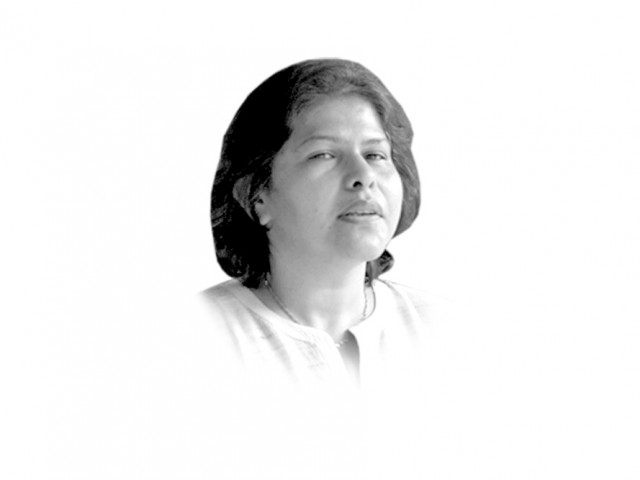The Musharraf Drama
Political govts have to play to their audience, otherwise there is no real fear of Musharraf being hung, put in jail.

The writer is an independent social scientist and author
of Military Inc.

Surely, the good general must be conscious of the fact that political governments have to play to their audience, which may result in provocative statements, otherwise there is no real fear of Pervez Musharraf being hung or put in jail. Nor is there any likelihood of any other general being made accountable. To start with, General Musharraf is a hot favourite with the Saudis to whom Mian Nawaz Sharif is indebted for saving his life and much more. Pakistan has increasingly begun to look like an attached territory of Saudi Arabia in which the Kingdom will invest in bringing to power the right government and helping it survive. This does not mean either that the army chief is not part of this strategic relationship, though there may be some discomfort on Riyadh’s attention getting divided between Islamabad versus Rawalpindi. Strategic partners must clearly understand where power lies.
Mian Nawaz Sharif is certainly no fool and he understands quite well that winning elections with thumping majority does not change dynamics. If he seems to be pushing Musharraf’s case it may be to keep the environment exciting and certainly with some tacit understanding with the top army boss as to how far the political government would proceed. The prime minister seems to surrender on every single count starting with the formulation of the national security policy that was outsourced to the National Defense University (NDU), the Pakistan Protection Ordinance, which gives excessive powers to the armed forces to operate with impunity, and relations with India on which the political government recently backtracked to keep the army in good spirits. In fact, in one of the recent press briefings on trade with India, the young minister of commerce was taken to task by a few aggressive journalists known for toeing military’s line. So, referring to the Musharraf trial, why would Mian Sahib consider this more important than many other issues on which he took an about turn? Unless, he is being advised by people in his party close to both the prime minister and key generals that the threshold in Musharraf’s case is fairly high so he could continue to poke the retired dictator in his ribs without fear of serious repercussion. The problem with such an approach always is that the message gets diluted, as had happened in 1999, and the government suffers due to its insiders that fail to blink at the right time.
But let’s suppose for a minute that the Sharif government wants to bring the case to its logical conclusion. If this is so, it does not seem to have done its homework of marketing it well. Notwithstanding Khawaja Asif’s passionate speech in the Parliament, which will be quoted against him at some future date, there is no real debate to develop a popular consensus. In fact, most of the formal civil society including the liberals of Pakistan, who have friends all over the world, appear to be against the idea. If nothing else, the fear is that supporting the case against Musharraf may strengthen a right-wing Sharif government that would eventually pave the way for civilian authoritarianism. Thus, all of a sudden, people wonder why earlier martial laws are not being challenged or that Musharraf was not the only scoundrel in town in 2007 and others must be tried as well. Moreover, given that some elements of the religious right, including the Taliban, seem to be the only ones with an interest in sending the former dictator to hell, it makes for even lesser interest in the case. In Pakistan, it is not about what’s right but which side you are playing for. Musharraf will be the centre of a long and painful drama but is not likely to get punished.
As far as the milestone business is concerned, an indictment is neither here nor there. The military remains powerful and capable of defending its key interests. Given that a democracy in transition is weak, Pakistan’s armed forces are the key power players.
The chances of the situation changing in the medium to long term are quite low. It is easy to say that civilian empowerment will only come through good governance but that is easier said than done. In patronage politics, in particular, it is easier to lose sight of the “real and present danger” because you think your interests are so tied that no one will trump the government until someone actually does. In any case, a glance at cases where military power has receded, such as Latin America, will show that in most cases, the civil-military shift happened mainly when the military appreciated, mostly under external pressure, that the cost of a coup or political intervention is high. In Pakistan, we have not reached that stage nor is there any one with stakes to roll back the military’s power.
Published in The Express Tribune, April 10th, 2014.
Like Opinion & Editorial on Facebook, follow @ETOpEd on Twitter to receive all updates on all our daily pieces.
















COMMENTS
Comments are moderated and generally will be posted if they are on-topic and not abusive.
For more information, please see our Comments FAQ